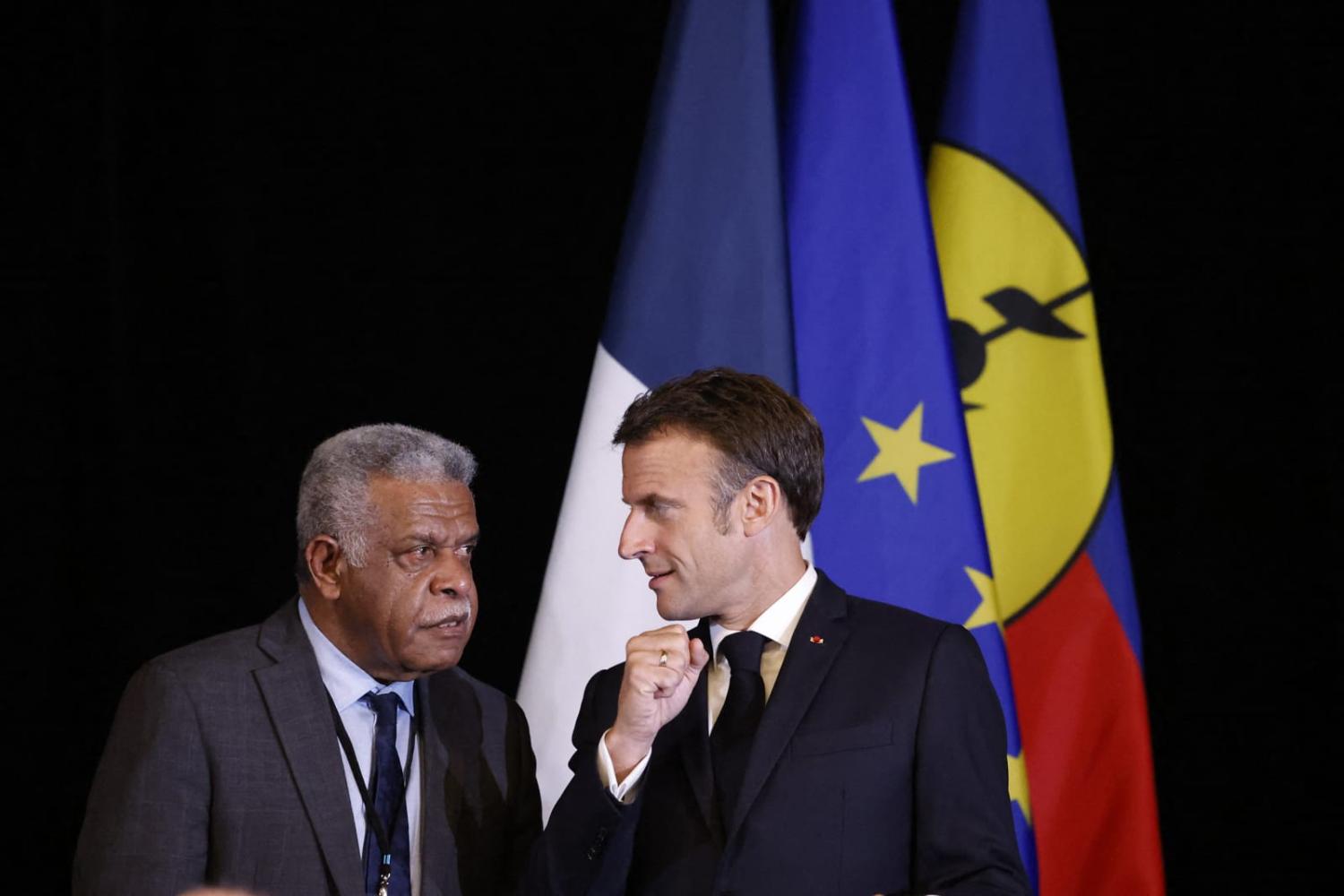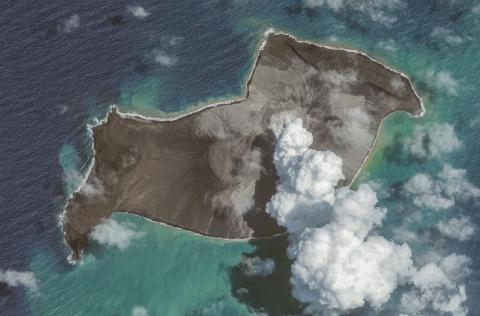New Caledonia’s political future remains uncertain, two years after a contested independence referendum in December 2021. All independence parties reject the pro-France outcome of the referendum, which they had boycotted after France ignored their call to defer the vote owing to Covid-19 deaths in their communities. They want another referendum under international auspices.
Numerous French efforts to convene talks on future governance have failed, as the oldest indigenous-based independence party, the Union Calédonienne (UC), refuses to participate.
Loyalist parties and France see the referendum process as complete and want to cement the territory firmly within France.
The referendum had taken place as the final stage of the 1998 Noumea Accord, which, after years of strife, had set out a self-determination process. Yet with local elections upcoming in May this year, a key issue under the Noumea Accord remains contentious – a provision confining voter eligibility in local elections to longstanding residents, essentially those with ten years residence to 1998.
This restriction was created in response to indigenous Kanak concerns that they would be outnumbered by European newcomers. Loyalists oppose the voting restriction, noting that it now excludes thousands of voters (mainly non-Kanak, presumably pro-France, arrivals since 1998). All independence parties oppose abolishing the restricted electorate.
To urge discussion, French Interior Minister Gérald Darmanin has repeatedly threatened that France will impose a solution, including doing away with voter eligibility restrictions altogether, if all parties fail to talk and agree.
When French President Emmanuel Macron visited Noumea in July 2023, after condemning non-participation in talks as risking a return to violence, he proposed a specific timetable, including a constitutional amendment at least on the voter eligibility issue, by early 2024, to enable the May 2024 provincial elections to proceed with a broader electorate than in the past.
Independence leaders absented themselves from a meeting Macron convened, and dismissed his plan as Paris’ timetable, not theirs. A French draft document prepared for discussion at another meeting in September in Paris was also dismissed as “unacceptable” by both the UC (who did not participate) and independence party Palika (who did). Loyalists were little more enthusiastic.
Now, a decision by France’s State Council in recent weeks has effectively watered down French government threats, with implications for future progress.
In the face of the deadlock, Macron had asked the State Council, France’s highest administrative adjudicator on government powers, to consider whether Noumea Accord electoral rules could be changed by simple legislation, and whether local elections could be postponed in order to change the rules or secure a broad political agreement.
The Council’s decision was made on 7 December, but the government only released it quietly on 26 December. The delay may have been because Noumea was in the regional spotlight that week, when Defence Minister Sébastien Lecornu who as Overseas France Minister had organised the controversial third referendum, hosted a regional defence ministers' meeting. Kanak independence supporters protested in the streets at the time against the Macron government’s “militarisation” of New Caledonia and “bulldozer” approach on the voter eligibility issue. Also in the same week, Darmanin had been obliged to cancel a visit for talks planned on New Caledonia’s future as the UC again refused to participate.
While the tortuous wording of the decision suggests the Council had wrestled with the issues, it is unequivocal in stating that alterations to Noumea Accord provisions, in this period of “seeking consensus” about the future, can only be made by constitutional amendment. In France, this involves endorsement by both parliamentary houses and takes time.
The Council seized on imprecise wording in the Noumea Accord about voter eligibility (as including the “children” rather than “descendants” of eligible voters), which if applied literally, it said would eventually wipe out the electorate. It said signatory partners had not intended the indefinite application of this provision with its associated derogation from principles of equality and universality of the vote. Without any imminent constitutional amendment, it would be acceptable to legislate to correct this “excessive” impact on equal universal suffrage, but solely in the context of negotiating a future consensus agreement. To allow for this, it would be possible to extend the mandate of the existing local Congress in New Caledonia by between 12 and 18 months, provided such negotiations were under way. The decision, postponing local elections for the current Congress, effectively negates Macron’s timetable to ensure agreement, if necessary, unilaterally, by early 2024.
Whether extending Congress’ mandate will advance discussion, and an ultimate consensus, is doubtful. The pattern of failed meetings over two years continues, with Darmanin not only cancelling his December visit but one planned for early January 2024 as well. Until all parties agree to talk, little progress can be made. Meanwhile, the Congress in New Caledonia, elected under long-term residence eligibility rules, now has an independence leader President and an independence party majority. Its consideration of every issue, from the budget to tax reform, is fraught, deepening divisions.
Macron recently appointed a former High Commissioner (or Governor) to New Caledonia as head of his office. In his January 2024 Cabinet reshuffle, Marcon retained Darmanin as Interior Minister, overseeing the New Caledonia portfolio. His cabinet changes overall showed a shift to the right. Having lost his parliamentary majority in mid-2022 elections, Macron is under pressure from the right, notably nationalist Marine Le Pen. All of this means he is unlikely to step back from keeping New Caledonia firmly in France’s fold. The stalemate seems set to continue.


